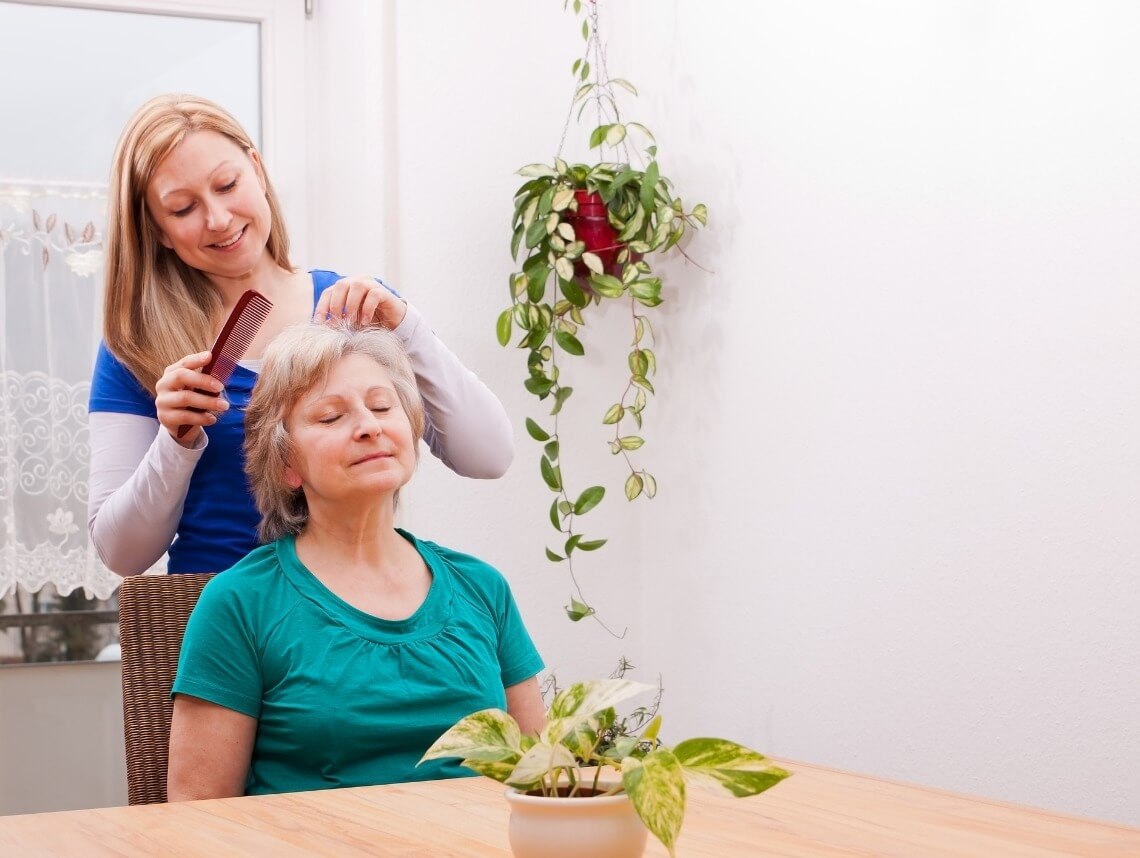Throughout childhood, our parents provided us with the love, care, and resources necessary to keep us healthy and strong. At some point in our lives, these roles will reverse and many of us will be faced with the challenges (and rewards) of caring for aging parents.
Unfortunately, the more dependent they become on others to receive assistance with personal care and grooming (bathing, dressing, toileting, skin care, dental care, hair care, etc.), the more embarrassed they are to accept help.
6 Bathing, Dressing, and Grooming Tips for Family Caregivers
Take a look at the following tips designed to make these duties easier on family caregivers and loved ones.
1. Shift Your Mindset
Helping your aging parent with personal care such as bathing, dressing, and toileting is certainly embarrassing at first for both parties.
To make the situation less personal and help your loved one feel more comfortable, start by changing the way you look at these tasks – thinking of and referring to them as simple medical procedures necessary for the health and well-being of your parent.
2. Create the Right Amount of Distraction
Talking about something or telling stories while bathing or toileting may help your loved one feel more comfortable, taking the focus off the task itself. It’s important to be sure, however, that they are not too distracted, making it difficult for you to perform your duties.
3. Communicate
Inform your loved one about what you’re doing each step of the way. This is especially important if your parent suffers from some form of dementia.
If you need your loved one’s assistance (holding the washcloth, lifting the arms or a leg, etc.), provide simple instructions to do so. This will not only help make your job easier, but also help them feel more involved and independent.
4. Use Moist Cloths and Dry Shampoo When Possible
Taking a bath or shower every day may not be necessary for your loved one; therefore using these items in between bathing times can be beneficial for both parties.
Wet wipes and similar products provide quick and easy clean-up in many situations and should be a staple piece for any caregiver’s purse or pocket.
5. Create Routines
For patients with Alzheimer’s and other forms of dementia, the time of day can play a huge role in how an individual responds to certain activities.
For this reason, try to base daily personal care and bathing around those times that your loved one is most alert and agreeable (typically in the mornings).
6. Ask for Help
Even the most seasoned caregivers need help every once in a while. Sonas Home Health Care can help by arranging a qualified and competent caregiver to provide personal care for your parent without sacrificing his or her dignity and privacy.
Contact Sonas for Home Health Care Services in Florida
Contact us directly to speak with a home health care professional or request a free in-home assessment. Together, we can determine the best plan of action for you and your loved one.
If you or an aging loved one are considering home health care services in Florida, contact the caring staff at Sonas Home Health Care. Call today (888) 592-5855.
This blog was reviewed by Jillian Miller BSN, RN — Director of Nursing for Sonas Home Health Care’s Tampa Bay market — for clinical accuracy. Jillian Miller has been a nurse for 16 years — working primarily in pediatrics. She believes the best part of working with the pediatric population is when you see smiles from clients when you first enter the room. She loves seeing the difference you can make in families’ lives while providing the best care possible for them.

